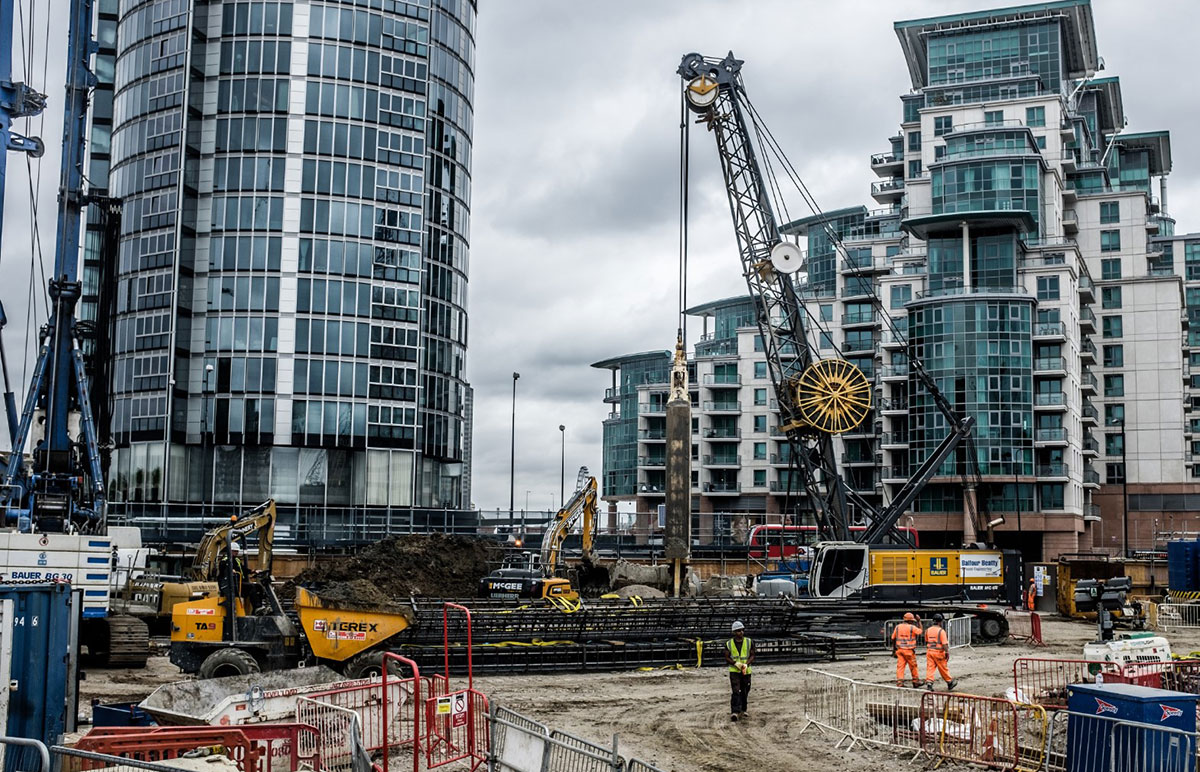The Geotheta Ideas
The Geotheta Ideas
Blog Article
The Ultimate Guide To Geotheta
Table of Contents10 Simple Techniques For GeothetaGetting The Geotheta To WorkThe Buzz on GeothetaWhat Does Geotheta Mean?How Geotheta can Save You Time, Stress, and Money.

They conduct website examinations, collect samples, do lab examinations, and analyze data to evaluate the suitability of the ground for building and construction projects - Consulting Engineers. Based on their findings, geotechnical designers give suggestions for structure layout, incline security, retaining frameworks, and mitigation of geotechnical risks. They team up with various other specialists, such as architects, structural designers, and building and construction teams, to guarantee that geotechnical considerations are integrated into the overall project design and implementation
By analyzing the actions and residential properties of dirt and rock, they can determine potential geotechnical threats such as landslides, dirt negotiation, or slope instability. Their know-how assists avoid failures or crashes that can threaten lives and residential or commercial property. Here are some detailed responsibilities and responsibilities of a geotechnical designer: Website Examination: Geotechnical designers conduct website investigations to gather data on subsurface problems.
They analyze the information to recognize the properties and habits of the dirt and rock, including their toughness, permeability, compaction characteristics, and groundwater conditions. Geotechnical Analysis and Style: Geotechnical engineers evaluate the data collected throughout site examinations to evaluate the stability and suitability of the website for building tasks. They execute geotechnical estimations and modeling to review factors such as birthing ability, negotiation, slope stability, lateral earth stress, and groundwater circulation.
Some Known Factual Statements About Geotheta
Structure Layout: Geotechnical engineers play an important role in creating foundations that can safely support the intended framework. They assess the dirt conditions and load demands to figure out the suitable structure type, such as superficial foundations (e.g., grounds), deep structures (e.g (https://forums.hostsearch.com/member.php?265240-geotheta)., stacks), or specialized strategies like soil improvement. They consider factors such as negotiation limitations, bearing capacity, and soil-structure interaction to develop optimum structure designs
They review construction plans, screen site tasks, and perform area evaluations to verify that the design referrals are complied with. If unexpected geotechnical issues emerge, they examine the situation and provide recommendations for removal or changes to the layout. Danger Assessment and Mitigation: Geotechnical engineers assess geotechnical threats and dangers associated with the project website, such as landslides, liquefaction, or soil disintegration.

Cooperation and Interaction: Geotechnical engineers function carefully with various other experts associated with a task, such as designers, structural engineers, and construction groups. Efficient interaction and partnership are important to integrate geotechnical factors to consider right into the general task layout and building procedure. Geotechnical engineers give technical experience, solution queries, and make certain that geotechnical requirements are fulfilled.
8 Simple Techniques For Geotheta
Below are some kinds of geotechnical designers: Structure Designer: Structure engineers focus on making and analyzing structures for frameworks. They evaluate the soil conditions, tons demands, and site features to figure out one of the most ideal foundation kind and layout, such as shallow structures, deep structures, or specialized strategies like heap structures.
They review the variables affecting slope security, such as soil homes, groundwater problems, and incline geometry, and create techniques to avoid slope failings and mitigate risks. Quake Engineer: Quake designers specialize in analyzing and developing frameworks to withstand seismic forces. They analyze the seismic risk of a site, evaluate dirt liquefaction capacity, and create seismic style requirements to make certain the safety and resilience of structures throughout quakes.
They execute area testing, gather examples, and evaluate the collected information to define the soil homes, geologic formations, and groundwater problems at a site. Geotechnical Instrumentation Designer: Geotechnical instrumentation engineers concentrate on surveillance and determining the behavior of soil, rock, and frameworks. They set up and preserve instrumentation systems that keep track of elements such as dirt negotiation, groundwater levels, incline activities, and architectural variations to examine performance and supply very early warnings of potential problems.
5 Easy Facts About Geotheta Shown
They carry out examinations such as triaxial tests, loan consolidation examinations, direct shear tests, and leaks in the structure tests to collect information for geotechnical analysis and design. Geosynthetics Designer: Geosynthetics designers specialize in the style and application of geosynthetic products, such as geotextiles, geogrids, and geomembranes. They make use of these materials to boost dirt security, reinforce slopes, provide water drainage services, and control disintegration.
They have a tendency to be investigative individuals, which indicates they're intellectual, introspective, and investigative. They are curious, methodical, logical, logical, and sensible. Several of them are additionally social, implying they're about his kind, generous, cooperative, individual, caring, practical, understanding, sensible, and friendly. Does this seem like you? Take our complimentary profession examination to figure out if geotechnical engineer is one of your top occupation suits.
In the office atmosphere, geotechnical designers use specialized software program tools to carry out calculations, create layouts, and examine data. They prepare records, evaluation job specifications, connect with customers and staff member, and coordinate job tasks. The workplace setting provides a helpful setting for research study, analysis, and cooperation with various other specialists associated with the job.
The Facts About Geotheta Revealed
They frequently check out job websites to conduct website investigations, analyze geotechnical problems, and gather information for analysis. These check outs involve traveling to various locations, often in remote or difficult surfaces. Geotechnical engineers may carry out dirt sampling, conduct tests, and monitor building tasks to make sure that the geotechnical aspects of the job are being implemented properly.
Geotechnical engineers likewise function in specialized geotechnical labs. Geotechnical research laboratory designers function extensively in these atmospheres, taking care of screening equipment, running tools, and tape-recording information.
Report this page